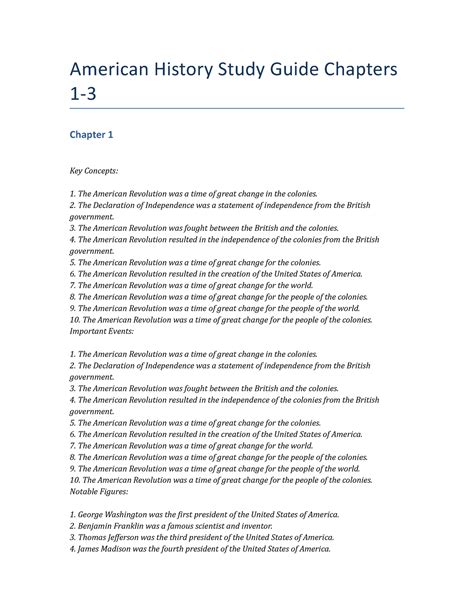Table of Contents:

- Pre-Columbian America
- European Exploration and Colonization
- The American Revolution
- The Early Republic and Westward Expansion
- The Civil War and Reconstruction
- The Late 19th and 20th Centuries
- 21st Century America
Pre-Columbian America
- Timeline: 12,000 BCE – 1492 CE
-
Key events:
- Arrival of the first humans in the Americas from Asia
- Development of various Native American cultures, including the Anasazi, Maya, and Inca
- Exploration of the Americas by European sailors
European Exploration and Colonization
- Timeline: 1492 – 1763 CE
-
Key events:
- Christopher Columbus’s voyages to the Americas
- Establishment of European colonies in North and South America
- Conflicts between European powers for control of the Americas
- Growth of the slave trade
The American Revolution
- Timeline: 1763 – 1783 CE
-
Key events:
- American colonists’ resistance to British taxation and rule
- Declaration of Independence in 1776
- Revolutionary War and American victory
- Formation of the United States of America
The Early Republic and Westward Expansion
- Timeline: 1783 – 1860 CE
-
Key events:
- Establishment of a federal government under the Constitution
- Purchase of the Louisiana Territory
- Manifest Destiny and the expansion of the United States westward
- Growth of the abolitionist movement
The Civil War and Reconstruction
- Timeline: 1861 – 1877 CE
-
Key events:
- Secession of Southern states and the outbreak of the Civil War
- Union victory and the abolition of slavery
- Reconstruction era and efforts to rebuild the South
- Enforcement Acts and the rise of the Ku Klux Klan
The Late 19th and 20th Centuries
- Timeline: 1865 – 1991 CE
-
Key events:
- Industrial Revolution and urbanization
- Gilded Age and the rise of big business
- Spanish-American War and acquisition of overseas territories
- World Wars I and II
- Cold War and nuclear arms race
- Civil Rights Movement
21st Century America
- Timeline: 1991 – Present
-
Key events:
- September 11 attacks
- War on Terror
- Great Recession
- Age of technology and globalization
Pain Points in American History
- Slavery and racism
- Economic inequality
- Political polarization
- Environmental degradation
Motivations for Studying American History
- To understand the roots of present-day America
- To appreciate the sacrifices made by those who came before us
- To learn from the mistakes and successes of the past
- To develop critical thinking and problem-solving skills
Why American History Matters
- It shapes our identity as Americans
- It provides a foundation for understanding current events
- It helps us address contemporary challenges
- It inspires us to create a better future
Frequently Asked Questions (FAQs)
-
When was the first permanent English colony in North America established?
– Jamestown, Virginia in 1607 -
Who was the first President of the United States?
– George Washington -
How many years did the Civil War last?
– Four years (1861-1865) -
Who was the leader of the Confederacy?
– Jefferson Davis -
What was the purpose of the Monroe Doctrine?
– To prevent European intervention in the Americas -
Who assassinated Abraham Lincoln?
– John Wilkes Booth -
What was the significance of the Emancipation Proclamation?
– It declared the slaves in Confederate territory to be free.
